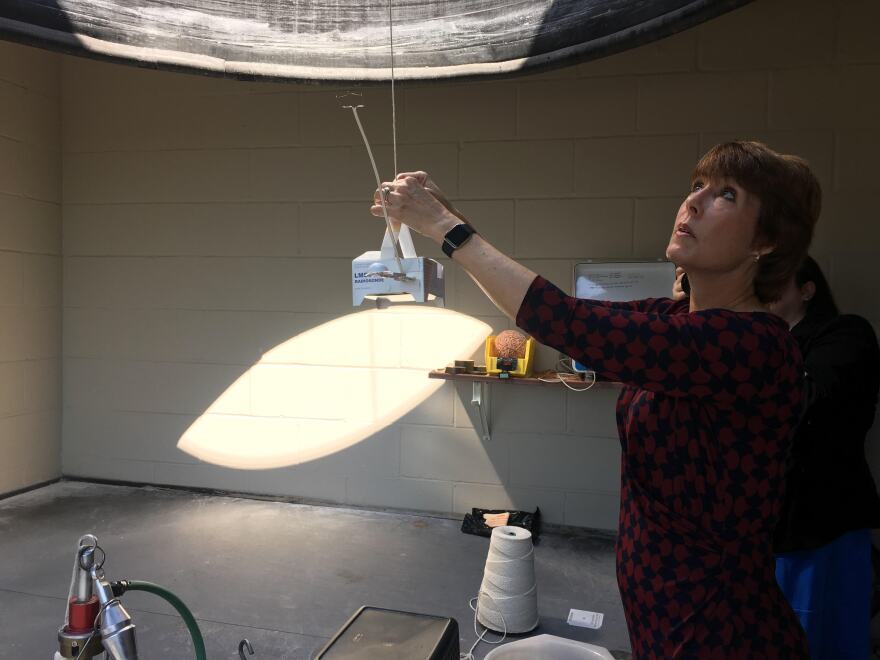Representative Gwen Graham didn't exactly "kick" off the hurricane season. She lifted it off.

At the Tallahassee National Weather Service, she helped send off a radiosonde. This is a weather-tracking device attached to a helium or hydrogen balloon.
It travels approximately 300 meters (about 984 feet) per minute, gathering data on pressure, temperature, humidity and GPS position.
"I had never seen this facility before," Graham says. "I wanted to see what the National Weather Service was doing right here in Tallahassee."
Graham says she also wanted to stress the importance of preparing for hurricane season despite the 11 years without hurricanes hitting Florida land.

"It's really important for people to understand that even though we haven't had a storm in a very long time, that it only takes one to devastate a region," she says. "Having seen what Andrew did, I understand the split second between life and death that a major hurricane can create."
Earlier this week, the National Oceanic and Atmospheric Administration predicted 10 to 16 named storms during this hurricane season.
However, Meteorologist Mark Wool doesn't put much stock in the prediction.
"The hurricane season forecast doesn't really matter, because it only takes one," Wool says. "If you get a hurricane in your community, it's a busy season for you. So we like folks to be prepared every season regardless of what the forecast may be."
Wool recommends Florida residents to have a self-sufficient, survival kit that can last at least 72 hours and an evacuation plan in case of a dangerous storm.
For more information on hurricane preparedness, visit hurricanes.gov/prepare.





